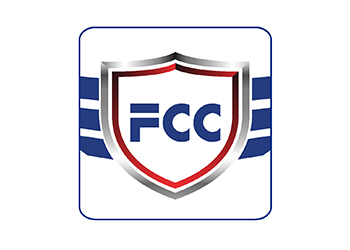IAW AFI 34-144, residents providing unauthorized child care in government owned and privatized housing is prohibited if providing care for more than 10 cumulative hours a week. Reports of violations will be reported to the Community Child Care Coordinator, Child and Youth Services Flight Chief, Force Support Commander, and Active Duty Member’s first Sergeant.
The Housing office will be contacted for those who are not certified and suspected violations will be reported. Additionally, the Active Duty member may be in violation of their Housing Lease Agreement.
Unauthorized care does not include:
Prospective providers may call the FCC Office to obtain an FCC Application, Background Check Paperwork, and schedule a date to attend the New Provider Orientation. With the implementation of new AF guidance on background checks FCC Providers may now be allowed to become “provisionally certified” which quickens the certification process. In addition to ongoing professional training providers have access to the Family Child Care Lending Library, which provides an abundance of materials, toys, equipment, art supplies, and music, STEM, and literacy resources for use in FCC homes. Professional development is encouraged to those who may be interested in voluntarily seeking national accreditation from the National Association of Family Child Care (NAFCC), and are provided local support, training and materials to accomplish this goal. With the implementation of new AF guidance on background checks FCC providers may now be allowed to become “provisionally certified” which quickens the certification process. Earn extra money while being able to stay at home with your own children. Extensive lending library available for all your day care supplies.
FCC Provider Orientation Program is designed to support FCC applicants as they go through the process of becoming a FCC Provider at an Air Force Installation. Providers can use this for their orientation training to become an FCC provider.
The subsidy program is designed to assist family’s utilization of an FCC home and pay the same weekly fee they would be charged for child care in an AF Child Development Center (CDC) or AF School-Age Care (SAC) Program. Currently the AF is buying down the cost of child care for those families who have: children or youth on the waiting list when there are no spaces available in the CDC or SAC; children/youth with special needs; parents that work outside the normal operating hours of the CDC or SAC. Subsidy is available to children 5 and under.
The EDC program is designed to assist families when weekly parental workloads due to extended duty hours, exceed the normal operating hours of the facility where they are already purchasing full-time care. Examples: mission related duty, extended duty days, temporary shift change (not to exceed 3 working days), rapid mobilization, dual military or single parent deployment until alternate child care is arranged, federal holidays, installation wide down days when AF Child Development Center and School-Age Care are closed and parents are required to work, mandatory PT.
The FCC 24/7 Child Care Program is designed to assist families when their work schedules are outside the normal operating hours of the facility where they are already purchasing full-time care. This program is specifically designed to support shift workers and any personnel who are required to work overnights, holidays, and weekends (e.g. Security Forces, Command Post, Fire Department, Medical, Force Support, Intelligence Surveillance and Reconnaissance and Distributed Common Ground System).
The Missile Care Program is designed to provide overnight, weekend, and holiday child care for those members assigned to work for more than 24 hours in the missile field. Must be purchasing full-time child care to qualify.
The MC2 Program is designed to provide child care for spouses to attend approved appointments, if the military sponsor is assigned to work for more than 24 hours in the missile field. Examples of approved appointments are medical appointments, classes offered by installation agencies, and employment opportunities.
The Deployment/Remote Assignment Child Care support allows families 16 hours for pre-deployment, 16 hours each month of the deployment/remote assignment, and 16 hours post deployment. AF FCC Deployment Child Care Support may be used once the member has orders and ends 60 days upon return from the deployment. AF FCC Remote Assignment Child care may be used each month the member is on remote assignment.
The HCC Program is designed to provide child care for those members of the Guard and Reserves (CAT A and B) during their regularly scheduled, or properly re-scheduled drill periods. This care is for Training Periods and Unit Training Assemblies only. Other forms of Inactive Duty training (e.g. RMPs and AFTPs) do not qualify for HCC. In addition, individuals on active duty orders (e.g. AT, ADOS, MPA or RPA) do not qualify for HCC.
The EMC Program is designed to assist families who are experiencing a medical situation with an immediate family member. Medical documentation must be provided for family member.
The WWC Program is designed to assist families when the Wounded Warrior has medical and/or military appointments. Must be a member of the Military Service with a Wounded Warrior Status.
The BC Program is designed to assist families with civilian and military appointments to deal with a fallen warrior.
Sponsored by the Air Force Aid Society, the AFAS PCS Program is designed to help relieve some of the stress felt by families in the process of a PCS move. AFAS PCS provides 20 hours of child care per child at both the departing and inbound installation. Families may use the child care 60 days before the family’s departure and 60 days upon arriving at the new installation. Must provide a copy of PCS orders.
Sponsored by the Air Force Aid Society, the AFAS VOL Program is designed to recognize the importance of volunteers to the installation community by assisting with child care expenses. This funding is not meant to replace other funding that may be available for this purpose, but rather, to provide additional funds to increase the number of volunteers at the installation. Must provide a copy of PCS orders.
The EFMP RCP is designed to assist Air Force families with short-term, specialized child care (to help reduce the stresses associated with caring for an exceptional family member). Sibling care is available up to age 13.




